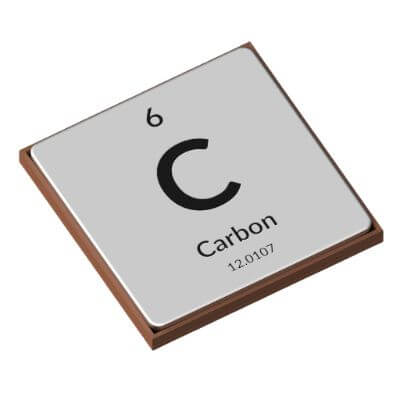
- Name: Carbon
- Symbol: C
- Atomic Number: 6
- Atomic Weight: 12.0107 u
- Period: 2
- Group: 14
21 Carbon Facts for Kids
- Carbon is a chemical element on the periodic table.
- Carbon was identified as an element in 1789, by French chemist Antoine Lavoisier.
- Carbon is a solid at room temperature.
- The symbol for carbon is C.
- The atomic number for carbon is 6.
- The standard atomic weight for carbon is 12.0107 u.
- Carbon is in the reactive nonmetal element category on the periodic table.
- Carbon is a period 2 chemical element, which is the second row on the periodic table.
- Carbon is a group 14 chemical element, which is the carbon group.
- Carbon has 15 known isotopes.
- The melting point for carbon is 6,422 °F (3,550 °C).
- The boiling point for carbon is 6,917 °F (3,825 °C).
- Carbon is the 15th most abundant element found on Earth.
- Carbon is the 4th most abundant element found in the universe.
- Coal is made of carbon and various other elements (hydrogen, nitrogen, oxygen and sulfur).
- Diamonds are made of carbon and form deep in the Earth’s mantle.
- Carbon monoxide is a byproduct of burning fossil fuels, this odorless gas is deadly to humans.
- Carbon dioxide is a byproduct exhaled by humans and makes up about 4% of the Earth’s atmosphere.
- Carbon makes up 20% of the weight of a human body.
- Carbon can be used to determine the age of organic material using a process called carbon dating.
- Carbon is based on the Latin word carbo, which means “coal”.
Additional Resources on Carbon
- Carbon – RSC – Read more about Carbon on the Royal Society of Chemistry website.
- Carbon – JLabs – Find more awesome facts about carbon on the Thomas Jefferson Labs website.
- Carbon – Britannica – Learn more about the carbon chemical element on the Britannica website.
- Carbon – Wikipedia – Discover some interesting facts about carbon on the Wikipedia website.
